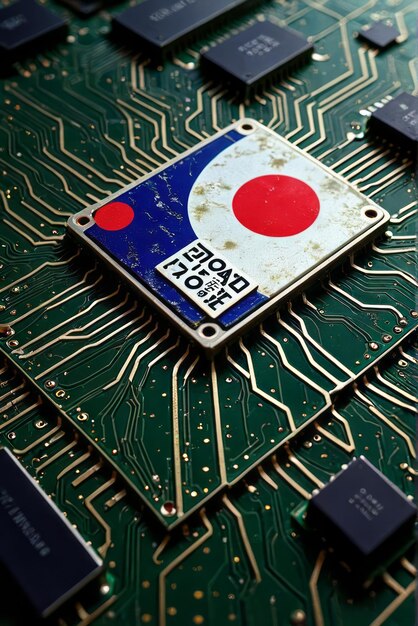Japan’s Game-Changing $65 Billion Plan: Revitalizing the Domestic Chip Industry
Japan, known for its technological innovations and economic prowess, is once again making headlines with a new ambitious plan worth approximately <$65 billion>. This
megaproject
, aimed at revitalizing its domestic chip industry, is expected to bring about a revolution in the global semiconductor market. The initiative, announced by Prime Minister Fumio Kishida during his
speech at the Renesas Electronics Corp.
in Shizuoka, highlights Japan’s commitment to technological self-reliance and industrial growth.
The
$65 billion investment
, earmarked for the next five years, will be allocated towards various projects. These include expanding production capacity, research and development, and creating an ecosystem that fosters innovation and collaboration among industry players. The government’s strategy is to create a
closed-loop system
where every part of the semiconductor manufacturing process from research and development to production, packaging, and testing is done domestically. This is aimed at reducing Japan’s dependence on other countries for key components in its tech industry.
Moreover, the plan seeks to attract global players into partnering with Japanese firms. This is expected to bring in advanced technology and expertise that will help Japan compete on the global stage. The government’s
aggressive
timeline calls for the first fruits of this labor to be visible by 2025, with Japan aiming to become a top three player in the global semiconductor market by the end of the decade.
The impact of this plan is far-reaching, extending beyond Japan’s borders. By increasing its own production capacity and attracting global players, Japan aims to create a
virtuous cycle
of investment and growth. This could potentially lead to increased competition and innovation in the global semiconductor market, benefiting consumers and businesses alike.
In conclusion, Japan’s $65 billion plan to revitalize its domestic chip industry is a bold move that could significantly impact the global tech landscape. With its commitment to self-reliance and growth, Japan is positioning itself as a key player in the semiconductor market once again.

Revitalizing Japan’s Chip Industry: Economic Benefits and Strategic Importance
Japan, once a
pioneer
in the
semiconductor industry
, has seen its dominance wane due to intense competition from
South Korea
and
Taiwan
since the 1980s. During the pre-1980s era, Japan was at the forefront of chip development,
revolutionizing
technology and setting industry standards. However, as South Korea and Taiwan ramped up their investment in the semiconductor sector, Japan began to lose ground.
Currently, the
Japanese chip industry
is undergoing a
transformation
. The market size was valued at approximately $86.5 billion in 2019, with a
growth rate
of around 4% per year (Statista, 2020). Some major
players
in the Japanese chip industry include Sony, Panasonic, and Renesas Electronics, holding combined market shares of approximately 15% (TechNode, 2020).
Revitalizing Japan’s chip industry is crucial for several reasons. Economically, the sector holds significant potential in terms of
job creation
, innovation, and export revenue. As the global tech race intensifies,
geopolitical considerations
further underscore the strategic importance of a robust semiconductor industry.

